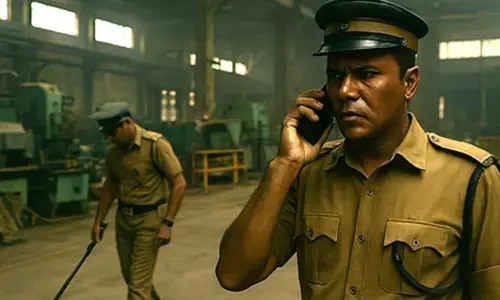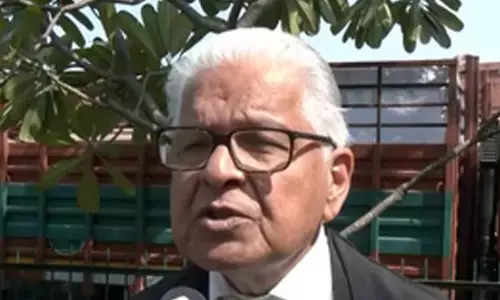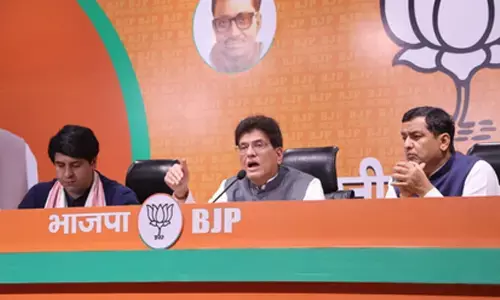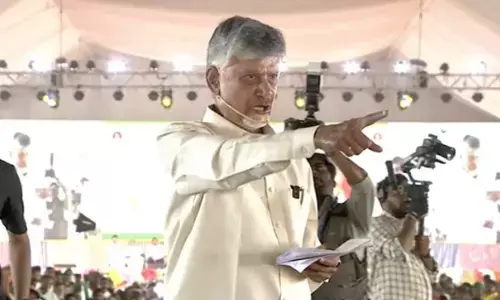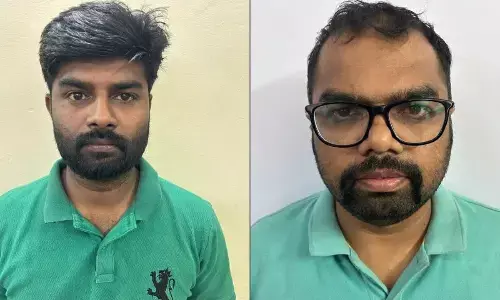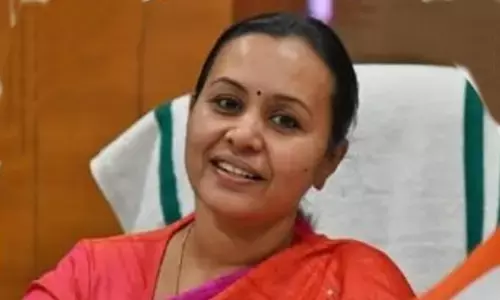Preserving Constitutional spirit during polls

Preserving Constitutional spirit during polls, The ongoing general elections spread over more than a month have reminded me of 1952 elections which were held almost in a similar duration.
The ongoing general elections spread over more than a month have reminded me of 1952 elections which were held almost in a similar duration. I was working as a teacher in Bhongir of the erstwhile Hyderabad state and was entrusted with the responsibilities of a presiding officer. I remember how the election staff carried all the polling material, papers and ballot boxes all by themselves from Bhongir to Devarakonda. I came back to school after completing my election duty and was bombarded with interesting questions from 9th class students. When one student asked me which candidate or party the people voted for, I told him about the oath, which presiding officers and the staff duly take on the eve of election duty that prevents them from revealing any such details. One of the students questioned as to what was the necessity of taking an oath at all. I told the students that polling officers help the blind and very old people, who visit the booth, to cast their ballot. Since physical disabilities prevent them from seeing the ballot paper, the presiding officer personally asks them about their choice, marks a tick on the appropriate candidate and then he puts the paper in a ballot box. One student then pointed out that his relative, who stood as a candidate in one of the segments also took oath. I told them that every candidate should take oath on Indian Constitution, if he or she intends to fight elections. Then immediately I was asked a very interesting question. What is the need to take oath on Indian Constitution when there are holy books like Bhagavad Gita, Quran or Bible for each religion?
As a citizen, we have some responsibilities. When one contests an election he should fulfill ‘Rajyadharma’. They could not understand this word and hence one of them asked as to what was the meaning of Rajyadharma? I explained to them about three pillars of the Constitution. A candidate should take oath to the effect that he or she would strive for political equality irrespective of the economic and social privileges to have an edge over rival contestants. The rich candidate should not use his financial muscle as a means to defeat his rival. They should also take oath not to instigate communal hatred, nor undertake campaign in places of worship nor make speeches along communal lines. The third oath a candidate ought to take was about maintaining national integrity, which also includes geographical integrity. The Constitution specifies candidates contesting elections to duly obey these codes. This was made mandatory because of the unequal society that we live in; the scope to woo voters based on communal lines or a chance to seek votes based on separatism especially in Jammu & Kashmir and other States situated on the border. The immediate question from the students was what would be the consequences if any candidate was found violating the oath taken during nomination. The reply from my end was that they would be disqualified.
This oath process is very significant since it keeps up the democratic spirit during elections. However, the sad part is not many, even among candidates, are aware of this formality besides duty and conduct during elections. I took oath when I entered the fray for MLC elections. Now instead of taking oath, candidates are being asked to put their signature on a paper on which all these rules are mentioned.
I believe that in the present school education the syllabus should be overhauled to the extent that the constitutional responsibilities and voting provisions are included in school curriculum. This will inculcate important values among students at an early age not to demean or criticise others, not to talk along communal lines. Even the non-governmental organisations could be roped in to create awareness among citizens. The Constitution should be made a part of the curriculum. The spirit and understanding of the Constitution among the youth would go a long way in making our democracy more responsible and responsive.
.


